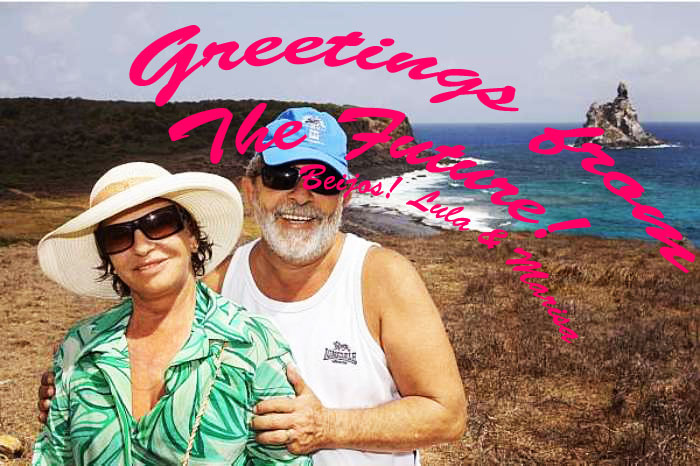
Brazil’s most popular politician in history is set to leave the presidency this year, ending nearly eight years at the helm of a government responsible for lifting over 20 million people out of poverty, maintaining Brazil’s economy booming during a global recession (with 2010 growth forecasted at 7.3%), and establishing Brazil as a regional and global leader.
Adding to Lula’s successes as president is the continuation of his legacy by his protégé, the Workers’ Party (PT) Dilma Rousseff, who is expected to win Brazil’s presidential elections on October 3rd. Barring an immediate vacation, what does a sixty-four year-old former president with over 80% in approval ratings do after leaving office? Let’s speculate.
The New Internationalist
President Lula has often spoken of his desire to use his time out of office to aid poverty-alleviation efforts throughout the developing world. In his weekly column, “The President Responds”, President Lula reiterated his plans to apply the lessons of his time in office to fight extreme poverty and hunger in Africa and Latin America. President Lula spoke of his hopes of sharing his experience building successful social programs and institutions like Embrapa (Brazil’s agricultural research institute) with other developing economies. Following in the footsteps of former world leaders, President Lula could launch his own charitable foundation and use his celebrity to channel resources toward innovative poverty-relief programs but this doesn’t quite seem like his style.
President Lula is more likely to work toward these goals in some state-sponsored or public capacity (if at all). For some time it was rumored that President Lula would seek the position of U.N. Secretary-General upon leaving office, permitting him the leadership to further the “South-South” development policies promoted under his administration. Although this rumor was quickly discredited, both when President Lula’s office rejected it and the availability of the position was considered (current UN Secretary-General Ban Ki Moon is expected to run again in 2011), President Lula could take on another U.N. position such as the directorship of the U.N. Food and Agriculture Organization (FAO). Another alternative could be a position in the new Rousseff administration. It is unlikely that Lula would replace Celso Amorim as Minister of Foreign Affairs (if he continues in this role) but it would not be unexpected to see Lula take on a decorative position as a goodwill ambassador or some other type of foreign emissary. President Lula could also always pursue this role as a private enterprise not unlike former U.K. Prime Minister Tony Blair and his Tony Blair Associates.
The Putin to Dilma’s Medvedev (But not really)
Partly fulfilling the warnings of the PSDB’s Jose Serra, President Lula is expected to have at least some role in Brazil’s new government. While it is unlikely that Lula will govern in tandem with Ms. Roussefff (like the Putin-Medvedev power duo) or even take on an official capacity in her administration, his influence in the PT and with Brazil’s congressional leaders will certainly be utilized by a future Rousseff administration.
Furthermore, given that Ms. Rousseff’s successful candidacy was largely dependant on President Lula’s support, her legitimacy and future authority will also partly rely on his blessing (at least initially). Throughout Ms. Rousseff’s presidential campaign President Lula mirrored this belief by committing himself to directly supporting her government if elected. Although this message was partly intended to win votes and comfort the electorate, President Lula’s participation in a future Rousseff government is seen as vital to stemming the influence of the PT’s old guard, which seeks to re-claim the party’s direction and authority under a weakened Rousseff government.
Lastly, although Lula will has not said that he’ll be running in 2014, he is not barred from doing so and has yet to rule it out. When asked about a future return to politics President Lula coquettishly declared, “in politics you never know.” Thus, like Russia’s Vladimir Putin, Lula could yet again return to the presidency.
The Moral Leader and Political Reformist
“I’m going to dedicate my heart and soul, though the PT, and in concert with other parties, to the effort of promoting a reform that represents a modernization of our political practices.”
Without a doubt current President Lula hopes to contribute to the reform of Brazil’s political and electoral institutions. President Lula’s immediate goals in reforming Brazil’s political system could be to update Brazil’s campaign finance law and change the election of Brazil’s state and federal deputies from an open to closed-list system. Overall, Lula hopes to strengthen the power of majority parties and diminish the horse-trading and corruption involved in building legislative consensus (like the 2005 mensalão scandal that nearly ended his administration).
President Lula will most likely support this cause by acting as a voice of morality for Brazil’s lawmakers and and strengthening Ms. Rousseff’s governing coalition via a private institute, foundation, or other self-styled political organization (President Lula’s aides are reportedly looking into the best legal incorporation for said political organization). Legal-vehicle aside, it remains clear that Lula plans to continue impacting Brazilian politics and has the power to do so.
Given Lula’s reported reluctance be leaving power, and his continued ability to wield presidential-like influence, the era of Lula seems far from over. Ex-President Lula will most likely take on some degree of the three roles just outlined and persist as the defining force of contemporary Brazilian politics.